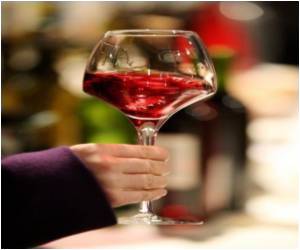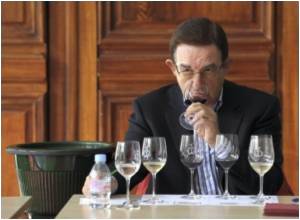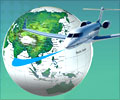
"At the moment it's somewhat stable but you have to fight for every piece of pie out there. The market is tough -- it's not an easy market," said Boschendal's Jamiel Ryklief after welcoming the tourists to the stately estate.
First planted by 17th-century European settlers, South Africa's vineyards add billions of rands to the economy and have made the country the world's seventh-largest producer.
South Africa wasn't allowed to sell its wine abroad during the international sanctions of the apartheid era, but now foreign sales make up 55 percent of production, which has tripled over the last decade.
But export volumes and earnings have slipped by around four percent since 2009, when overseas sales were valued at 7.7 billion rands ($1.1 billion, 791 million euros), said Wines of South Africa spokesman Andre Morgenthal.
The blow has been cushioned by stronger performance of more expensive bottled wines and more bulk wine sales to Britain, the biggest foreign buyer, as well as inroads into new markets like Sweden.
Advertisement
The industry is also wooing Asia, which currently accounts for a tiny fraction of exports.
Advertisement
"It's a long-term project. The challenge there is to teach people to drink wine and to bring a culture of food and wine to them because they are not used to drinking alcoholic beverages along with their meals."
The growing popularity of South African wine has also driven a surge in top quality restaurants in the striking winelands -- lying north-east of Cape Town and in the city's suburbs.
Emerging as a foodie hotspot, the French-flavoured town of Franschhoek has Africa's only entry on the latest annual S. Pellegrino World's 50 Best Restaurants list.
Local Reuben Riffel, who replaced British celebrity chef Gorden Ramsay at the luxury One&Only hotel in Cape Town, sees himself as an example of the area's wine and food explosion.
"The wine industry, the restaurant industry, that's almost what Franschhoek is built on. It's given a lot of opportunities to people," said the top chef who went from working as a waiter to owning three restaurants.
"I was born in Franschhoek and I did see it developing from a ghost town to what it is now. I think it sort of developed together: the wine farms and the restaurants. I definitely saw the change.
Wine tourism and exports are seen hand-in-hand by the industry.
"It's a great starting point where people can enjoy the product on the farm as well as market it beyond the farm," said Boschendal's Ryklief.
"It puts a face to the name and it makes it more personable -- it's not just a product, it's a memory you are making."
For tourists like the Swedes, the on-site tastings are a chance to peek beyond the labels on supermarket shelves at home.
"I've already bought two bottles of red wine to take home," said Anita Persson, 56.
Source-AFP










